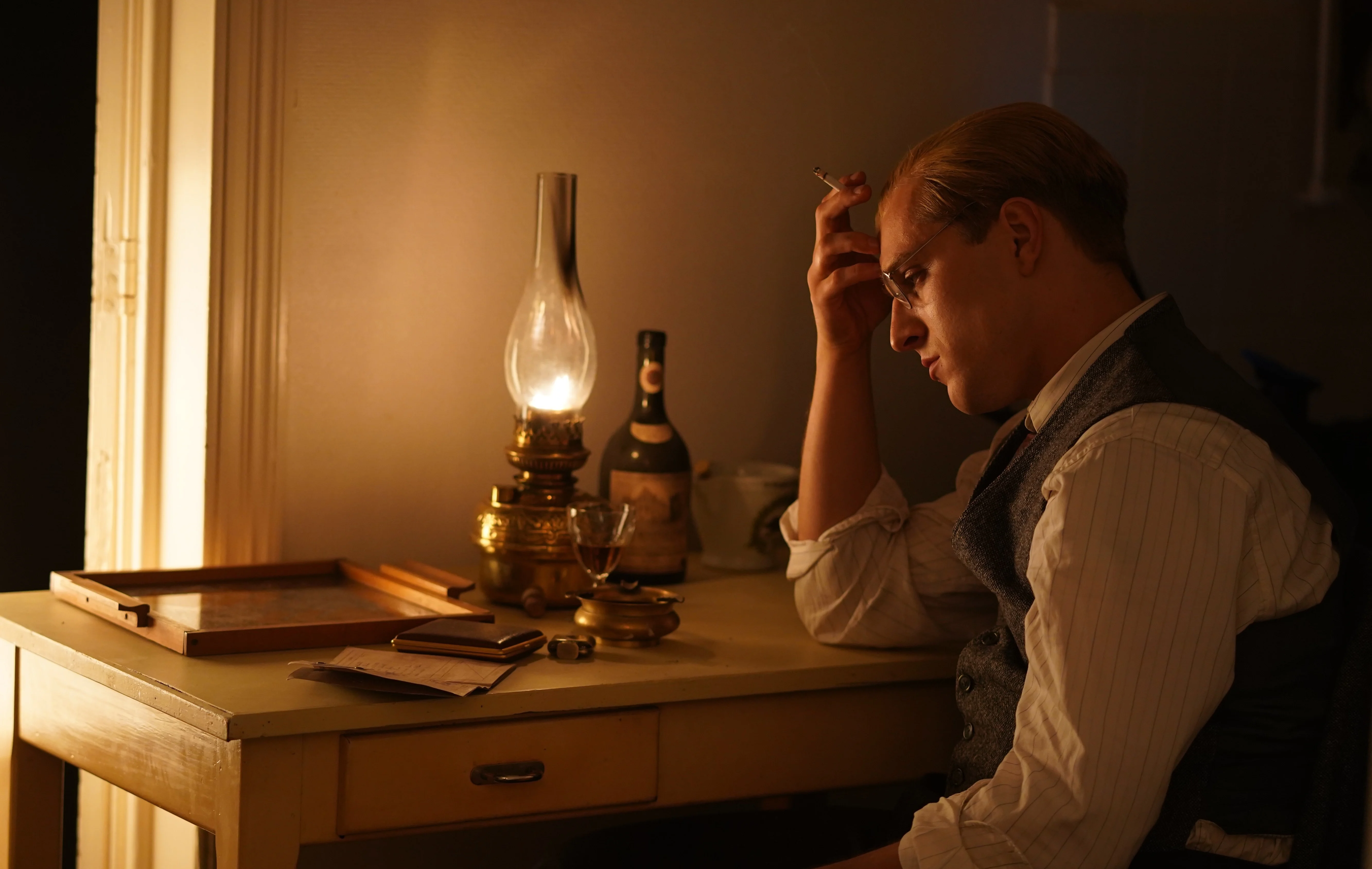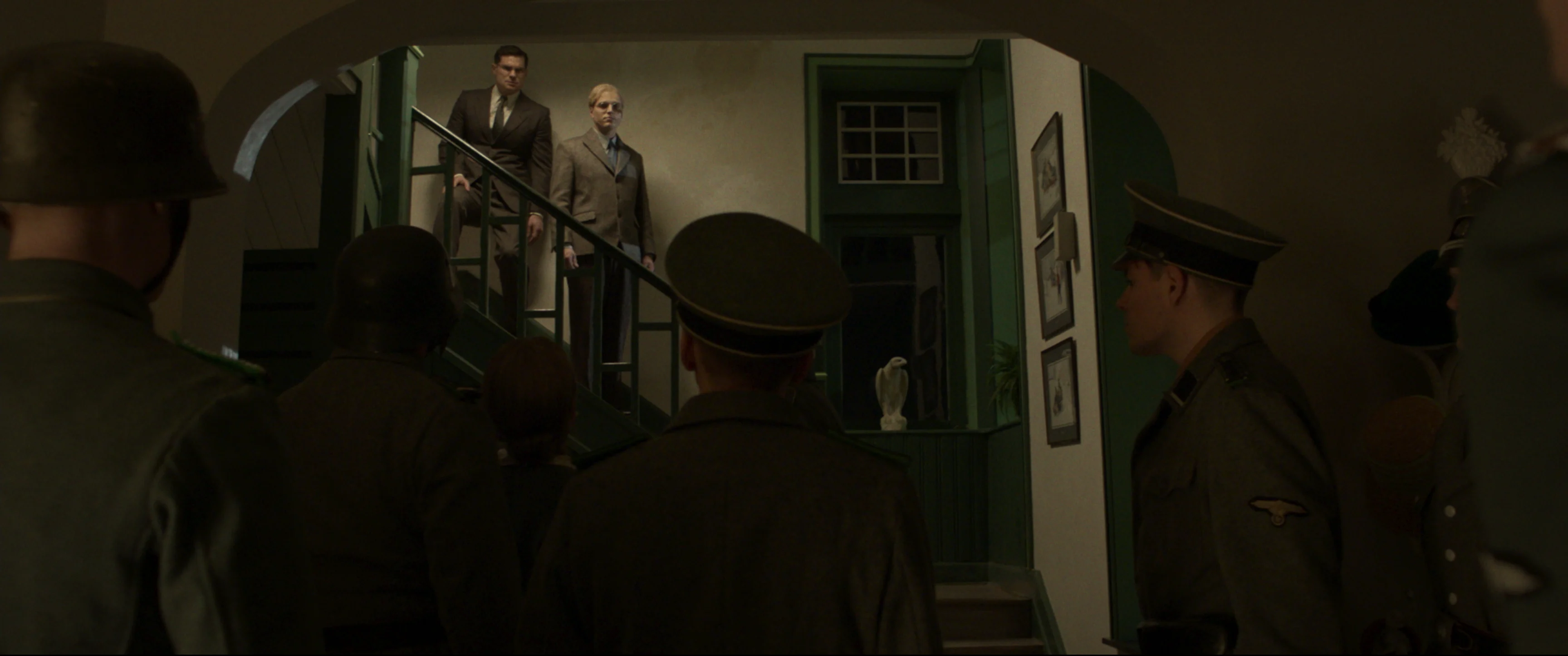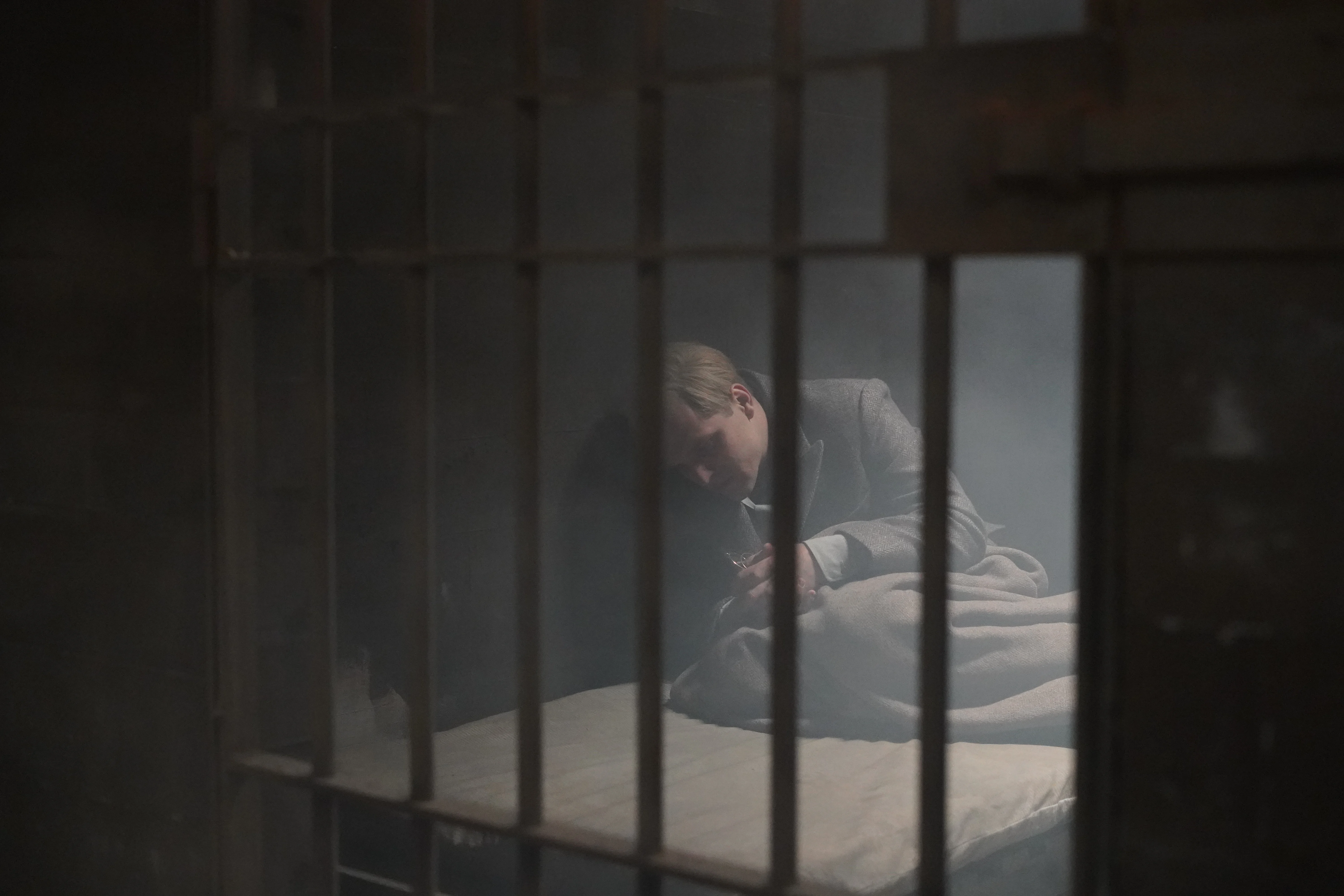Dietrich Bonhoeffer: Theologian, Rebel, Martyr
Who was Dietrich Bonhoeffer?
Dietrich Bonhoeffer was a pastor and theologian who lived and worked in Germany at the time of World War II. When the Lutheran Church in Germany was manipulated and overtaken by Hitler’s Third Reich, Bonhoeffer, and other dissenters formed Germany’s Confessing Church as a way to continue to worship their God, while their old church worshiped their Führer.
Bonhoeffer taught and wrote against the new and pervasive regime, their treatment of the Jews, and their uninhibited allegiance to Hitler. Ultimately, the pacifist pastor decided to assist in a plot to assassinate the dictator, a decision that would eventually lead to his execution.
Though the assassination plot was unsuccessful, and the war continued until May of 1945, Bonhoeffer’s bold teachings and brave action inspired many in his own time and throughout history. Even today, many are influenced by his writings. His 1937 book, The Cost of Discipleship, continues to be read and beloved by Christians around the world.
Bonhoeffer’s inspirational and courageous story has been made into a riveting film experience, complete with an all-star cast and immersive cinematography. Bonhoeffer, starring Jonas Dassler in the film’s titular role, will premiere in theaters in November 2024. Read on to discover more about the courageous theologian and his life’s work during one of the most notorious and oppressive regimes in history.
Early Life and Key Influences of Dietrich Bonhoeffer
Dietrich Bonhoeffer was born on February 4, 1906, in Breslau, Germany. He was the sixth child of Paula and Karl Bonhoeffer. Bonhoeffer obtained a degree in theology, then moved briefly to Spain to teach a German-speaking congregation in Barcelona. He then went on to study at New York’s Union Theological Seminary, during which time he attended and taught Sunday school at the predominantly black Abyssinian Baptist Church in Harlem.
Bonhoeffer learned from his friends in the Abyssinian Baptist congregation about the topic of racial injustice, a subject in which he became deeply interested. During his time in New York, Bonhoeffer also joined the Protestant ecumenical movement and became an active member. The ecumenical contacts Bonhoeffer made would later be essential for Bonhoeffer’s work against the Third Reich and for the founding and survival of the Confessing Church.
Because of these experiences with individuals who suffered unjust treatment, Bonhoeffer geared his theological teachings to compassion for the downtrodden and the disadvantaged. Bonhoeffer’s studies in America instilled in him a passion for civil rights issues, as well as a love for African American spirituals. He became enchanted with the black perspective on Christ, being so passionate and clear, and this continued to shape his life as a pastor and Christian.
Bonhoeffer went on to teach systematic theology at the University of Berlin, then joined the ministry in London to try and drum up support for the Confessing Church in Germany. In London, Bonhoeffer declined an opportunity to study under Gandhi to return to Germany, support the fledgling Confessing Church, and teach in underground seminaries.
Bonhoeffer's Resistance Against National Socialism
In 1933, upon the rise of Hitler’s National Socialist ideology, a group who called themselves the German Christians (Deutsche Christen) created a pro-Nazi “Reich Church” to replace the nation’s traditional Protestant churches, as a way to nazify Protestantism itself and implement the state’s “Aryan laws”---which prevented the baptism of Jews—within the church.
Even though Nazi ideologies were pervasive and widespread, many church leaders initially opposed the implementation of the Aryan law. They argued that the law contradicted what had always been taught about baptism and ordination, and Bonhoeffer declared it to be a surrender of Christian beliefs to political ideology.
While the Reich Church sought to implement these Aryan laws, Bonhoeffer and other dissenting Protestants formed the Confessing Church, which was free of Nazism, in 1934.
The Confessing Church had rebelled against the German Christians, but most of the leaders within the Church avoided criticizing the Nazis. Though a few leaders were outspoken about the regime’s persecution of Jews in Germany, most were silent.
In 1933, Bonhoeffer penned one of his most famous essays, entitled “The Church and the Jewish Question.” In this essay, Bonhoeffer addressed the issues and challenges presented to the Church under the Nazi regime, arguing that not only was National Socialism to be opposed by Christians, but that it was, in itself, an illegitimate form of government. In this complex and early rebuff of National Socialism, Bonhoeffer detailed a three-part opposition of the Church to the Nazi regime. He first demanded that the Church question the injustice being wrought by the Nazi state. Second, he insisted that the Church was obligated to take compassion on all victims of unjust treatment, whether or not the victim was Christian. Lastly, Bonhoeffer asserted that the Church should be prepared to be called to “put a spoke in the wheel” that could stop the unjust machine at last.

Themes in Bonhoeffer's Theology and Writings
Bonhoeffer and other founders of the Confessing Church viewed Nazism as a threat to Christian beliefs and values. They saw Hitler’s Aryan laws as an affront to Christ’s mandate to love, teach, and baptize all nations, and Bonhoeffer saw it as a Christian responsibility to defend those who were rejected, discriminated against, and pushed to the margins of society. This view was heavily influenced by Bonhoeffer’s time among black congregations in America.
Another theme of Bonhoeffer’s teachings was the subject of “cheap grace.” In Bonhoeffer’s famous Christian book The Cost of Discipleship, he examines Christ’s Sermon on the Mount. Bonhoeffer’s literary analysis of the biblical event centers on the concept of “cheap” versus “costly” grace, with Bonhoeffer arguing that faith without obedience is nothing (reminiscent of the assertion in the book of James that faith without works is dead), and that a saved person will have a drastic change in their life. Dietrich Bonhoeffer wrote that “Cheap grace is preaching forgiveness without requiring repentance, baptism without church discipline, Communion without confession. . . . Cheap grace is grace without discipleship, grace without the cross, grace without Jesus Christ, living and incarnate…[costly grace is] the kingly rule of Christ, for whose sake a man will pluck out the eye which causes him to stumble, it is the call of Jesus Christ at which the disciple leaves his nets and follows him” (quoted in Christianity Today, February 7, 1994, p. 39, as referenced by Got Questions Ministries).
Bonhoeffer’s idea of “cheap” vs. “costly” grace is still relevant today, as the issue divides and defines many Protestant Christian denominations worldwide. His book, The Cost of Discipleship, is still widely read and revered by Christians worldwide.
In his travels, studies, and life’s work, Bonhoeffer made it a point to learn from and engage with the beliefs of others. It was entities such as the Abyssinian Baptist Church in Harlem that shaped and influenced his theological perspectives and eventually inspired him to oppose the Third Reich.
How Did Dietrich Bonhoeffer Die?
Dietrich Bonhoeffer would eventually meet his end in execution, by hanging, at the hands of Nazi soldiers.
In his dissent against the Nazi regime, the pacifist Christian Bonhoeffer did what, to him, had always been unthinkable: he joined in on a plot to assassinate Adolf Hitler.
Called “The Valkyrie Plot,” the assassination was nearly attempted but fell apart in the end, and Bonhoeffer—shortly after becoming engaged to his girlfriend—was arrested and imprisoned for his association with the group. The evidence implicating Bonhoeffer of intent to overthrow the government eventually led to his being court-martialed and to his death sentence.
While imprisoned, Bonhoeffer continued his ministry. He acted as a spiritual counselor to fellow prisoners of all faiths and backgrounds and continued to write and teach from prison.
On April 9, 1945—just weeks before the war would end in Europe—Dietrich Bonhoeffer was hanged at the Flossenburg POW camp for his rebellion against the Nazi regime, along with his brothers and brother-in-law who had also participated in The Valkyrie Plot. Just days later, American forces would liberate Flossenburg and set his fellow prisoners free. The courageous 39-year-old pastor died heroically and bravely, with his eye on heaven and no regret about his life’s work to maintain the integrity of the German church. His invigorating last words were “This is the end—for me, the beginning of life.”

Remembering Dietrich Bonhoeffer's Impact
There are several sites dedicated to the memory of Bonhoeffer, including the Buchenwald Memorial, as well as statues in the St. Petri Church and Westminster Abbey. He is commemorated by several Christian denominations—including the Church of England—on April 9, the anniversary of the martyr’s death.
Dietrich Bonhoeffer helped to incite a movement of dissent against one of the most oppressive and brutal regimes in modern history. Bonhoeffer’s influence endured beyond his death and continues to endure today in Christian circles across the globe.
Bonhoeffer’s writings while imprisoned were published posthumously as his Letters and Papers from Prison. He is also revered and renowned for his theological works Ethics and The Cost of Discipleship.
Bonhoeffer’s faith and commitment to Christ endured until he drew his final breath. Bonhoeffer’s work in Germany, and his fight against one of history’s most terrifying regimes, continue to inspire and influence the faithful even today.
See the Dramatic Bonhoeffer Epic
Inspired by the story of Dietrich Bonhoeffer? Experience the feature film based on his courageous and harrowing life, in theaters in November 2024. A richly talented cast and crew bring Bonhoeffer’s work and experiences to life in a miraculous way, and we’re beyond excited for you to experience this stirring film.
Learn more about the riveting upcoming biopic here, and get ready to experience the film in theaters in November 2024.
Bonhoeffer’s teachings helped to fuel a rebellion against Hitler’s Third Reich, and they’re just as relevant today. Help share this film and its important message with others, and add your voice to Bonhoeffer’s in defense of the vulnerable. Pay it Forward today to help someone else experience Bonhoeffer in theaters, and help build up a new force for good in the world.
Angel Studios is dedicated to supporting and distributing projects that amplify light. Discover a new era of entertainment and stream Angel Studios hits for FREE on the Angel Studios app.
Únete al Angel Guild para descubrir una narración maestra.
Ayuda a transformar la industria.
Tu membresía contribuye directamente a la producción de películas como Bonhoeffer, permitiendo a los cineastas contar más historias que aumentan, entretienen y amplifican la luz.




